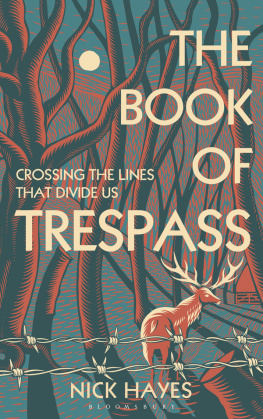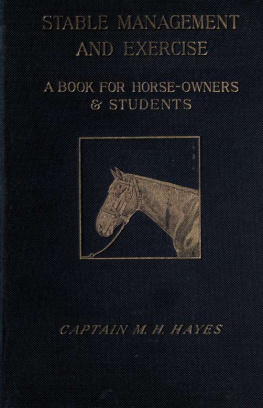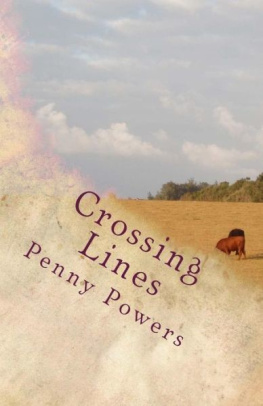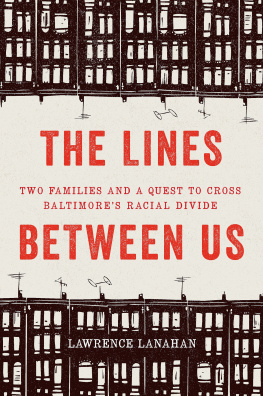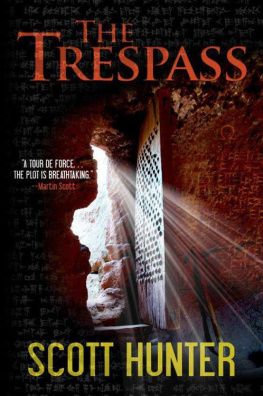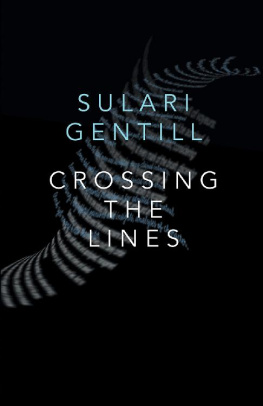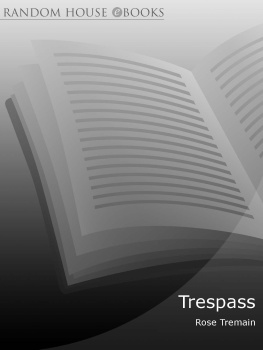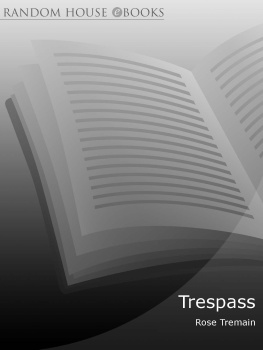Nick Hayes - The Book of Trespass: Crossing the Lines that Divide Us
Here you can read online Nick Hayes - The Book of Trespass: Crossing the Lines that Divide Us full text of the book (entire story) in english for free. Download pdf and epub, get meaning, cover and reviews about this ebook. publisher: Bloomsbury Publishing, genre: Art. Description of the work, (preface) as well as reviews are available. Best literature library LitArk.com created for fans of good reading and offers a wide selection of genres:
Romance novel
Science fiction
Adventure
Detective
Science
History
Home and family
Prose
Art
Politics
Computer
Non-fiction
Religion
Business
Children
Humor
Choose a favorite category and find really read worthwhile books. Enjoy immersion in the world of imagination, feel the emotions of the characters or learn something new for yourself, make an fascinating discovery.
- Book:The Book of Trespass: Crossing the Lines that Divide Us
- Author:
- Publisher:Bloomsbury Publishing
- Genre:
- Rating:5 / 5
- Favourites:Add to favourites
- Your mark:
- 100
- 1
- 2
- 3
- 4
- 5
The Book of Trespass: Crossing the Lines that Divide Us: summary, description and annotation
We offer to read an annotation, description, summary or preface (depends on what the author of the book "The Book of Trespass: Crossing the Lines that Divide Us" wrote himself). If you haven't found the necessary information about the book — write in the comments, we will try to find it.
Nick Hayes: author's other books
Who wrote The Book of Trespass: Crossing the Lines that Divide Us? Find out the surname, the name of the author of the book and a list of all author's works by series.
The Book of Trespass: Crossing the Lines that Divide Us — read online for free the complete book (whole text) full work
Below is the text of the book, divided by pages. System saving the place of the last page read, allows you to conveniently read the book "The Book of Trespass: Crossing the Lines that Divide Us" online for free, without having to search again every time where you left off. Put a bookmark, and you can go to the page where you finished reading at any time.
Font size:
Interval:
Bookmark:

THE BOOK OF TRESPASS

BLOOMSBURY PUBLISHING
Bloomsbury Publishing Plc
50 Bedford Square, London, WC1B 3DP, UK
BLOOMSBURY, BLOOMSBURY PUBLISHING, and the Diana logo are trademarks of Bloomsbury Publishing Plc
First published in Great Britain 2020
This electronic edition published 2020
Copyright Nick Hayes, 2020
Illustrations Nick Hayes, 2020
Nick Hayes has asserted his right under the Copyright, Designs and Patents Act, 1988, to be identified as Author of this work
For legal purposes the constitute an extension of this copyright page
All rights reserved. No part of this publication may be reproduced or transmitted in any form or by any means, electronic or mechanical, including photocopying, recording, or any information storage or retrieval system, without prior permission in writing from the publishers
Bloomsbury Publishing Plc does not have any control over, or responsibility for, any third-party websites referred to or in this book. All internet addresses given in this book were correct at the time of going to press. The author and publisher regret any inconvenience caused if addresses have changed or sites have ceased to exist, but can accept no responsibility for any such changes
A catalogue record for this book is available from the British Library
ISBN: HB: 978-1-5266-0469-9; EBOOK: 978-1-5266-0471-2
To find out more about our authors and books visit www.bloomsbury.com and sign up for our newsletters
for my two mothers,
Cornelia and Cristine,
without whom there would have been
neither nurture nor nature
with love
xx
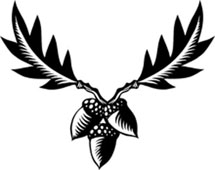
There have existed men who had the power to hold or to give exclusive possession of portions of the earths surface, but when and where did there exist the human being who had the right?
Henry George, Progress and Poverty
CONTENTS

Fires, tracks, lines and legislation
Any friend of mine walks where he likes in this country, or Ill want to know the reason why
Mr Badger, The Wind in the Willows
On the morning of St Georges Day 1932, a teenager called George Beattie Elliot took the train from his home in Preston. With his climbing ropes and enough supplies for a couple of days camping and roaming, he travelled the sixty miles to the brim of the Peak District and set off on foot.
He was not alone. Every weekend, thousands of men and women would stream from the blackened, industrialised cities of Sheffield, Manchester, Bolton and Preston to catch a breath of fresh air and clean the chimneys of their lungs. Freed from the beat of the working week, they sought scenery and self-determination. They walked twenty miles up and down dale, and then back to the pub on a Sunday night for huzzahs, huzzoohs and a socialist singsong. Rambling, cycling and climbing clubs had spawned across the area, train companies were offering group discounts, and, with the new Youth Hostel Association offering cheap accommodation for the overnighters, the thirty-seven square miles of Bleaklow were a honey pot for the worker bees of the north.
George cut off the busy main paths and, trespassing now, he sneaked across the open moorland. He was heading to the Laddow Rocks, where he would spend the night in a cave halfway down a steep scree slope, a small pocket of secret space, silent and snug beneath the heavens. He slept, and must have woken early, because by mid-afternoon the next day he had already covered thirteen miles, passed Bleaklow, gone through Snake Pass and was ascending the north face of Kinder Scout, the highest point of the Peak District. The cities of Manchester and Bolton rolled beneath him and if the day had been crystal clear he would have been able to see, over a hundred miles away, the white peaks of Snowdonia. The rocks at the summit, silhouetted by the bright sky, ran like the turrets of a ransacked stone fort, and, as he approached them, he heard a commotion from the other side of the peak.
He climbed further and as the hill flattened out he saw a crowd of a few hundred, mostly around his age, singing and shouting, advancing towards a line of a dozen gamekeepers. As soon as the crowd saw George, their shouts inexplicably turned to cheers, they waved their caps at him and urged him on like a sporting hero. The keepers turned and, as several rushed towards him, George saw the broad sticks they were holding. Georges confusion intensified as the keepers circled him, even more so as they began to punch him to the ground. The crowd arrived, the keepers were hauled off him and George was pulled to his feet, slapped on the back and praised for his heroic work for the good old cause. The scene ended as quickly as it had sprung upon him, the crowd moved on and poor George was left, as before, to the silence of the Peaks. Bruised, utterly bemused, stars spiralling around his head, George continued his walk as planned, descending into the Goyt Valley and out of history.
It was only at work on Monday that he would have uncovered the meaning of this bizarre and briefly violent encounter. It was all over the papers. Four hundred ramblers had met at Hayfield, a few miles west of Kinder, and, amid a large police presence, had walked up the William Clough pass to protest for a greater right of access to the moors. Because it was well publicised in advance, the Duke of Devonshires men were ready with their sticks and hired men, and at the precise time George had crested the peak the crowd were beginning to break bounds, spill off the Right of Way and pile up the hill. Only a small proportion of the crowd made it onto the forbidden land, and only by about four hundred metres, before the violence George experienced spread into a tussle with the keepers. Some trespassers had hoiked away the keepers sticks and exchanged a few blows, causing one keeper to fall and break his ankle. The crowd had its climax and merrily they rolled along, singing The Red Flag and The Internationale back to Hayfield. The constabulary emerged from their hiding place in the local picture house, and the plain-clothed bobbies who had accompanied the trespassers pointed out the ringleaders, six of whom were arrested and taken for trial at the Derby assizes. Entirely unwittingly, George had fallen upon one of the most notorious land protests in English history, the Kinder Trespass.

We reach the dell and lay our fire. Scuffing away the black leaves with the toe of my boot, I scrunch a manger of newspaper on the wet earth and balance brittle twigs on top. My friend is off in the distance, crashing around in the bracken, gathering fallen wood. I touch a flame to an edge of the newspaper and a line of blue wriggles along its edge, blackening it, gaining ground like a tiny rising tide. I light the other available corners and begin to pile thicker twigs into a wigwam around the flame, black-tipped ash and brittle pencil twigs from a long-fallen elder.
An owl hoots, cool and spooky, and it suddenly seems much colder. I drop to my knees, hands on the wet earth, and I lay my head alongside the fire and I blow long gentle streams of air into its centre. The twigs glow red like the filament of a bulb, and, as my breath runs out, the flames reappear, stronger than before. I breathe in and blow, breathe and blow, and there is a warm crackling noise as the fire takes. I blow harder and the fire roars, comes alive, and is soon ready to fend for itself. My friend piles on shin-length logs that he has cracked underfoot from the fallen limbs of ash, oak and cherry. We both blow, then step back to watch the flames rise up the wooden scaffold, searing at the rough bark, unlocking decades of stored sunlight into our damp, gloomy dell.
Font size:
Interval:
Bookmark:
Similar books «The Book of Trespass: Crossing the Lines that Divide Us»
Look at similar books to The Book of Trespass: Crossing the Lines that Divide Us. We have selected literature similar in name and meaning in the hope of providing readers with more options to find new, interesting, not yet read works.
Discussion, reviews of the book The Book of Trespass: Crossing the Lines that Divide Us and just readers' own opinions. Leave your comments, write what you think about the work, its meaning or the main characters. Specify what exactly you liked and what you didn't like, and why you think so.

